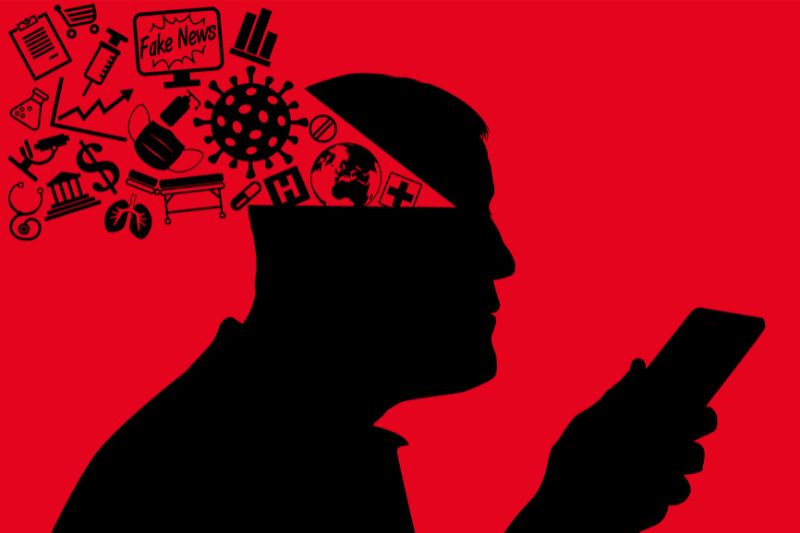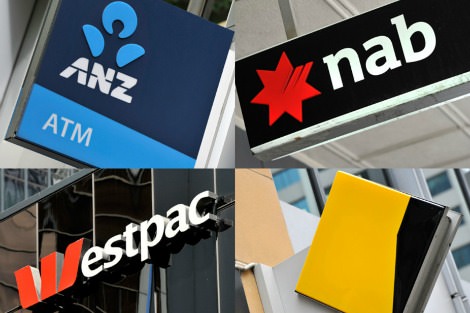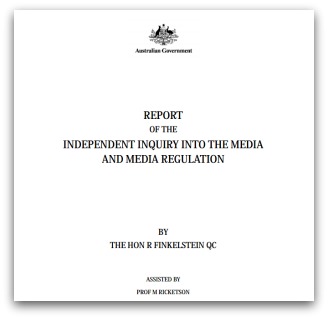Keywords: Self-Regulation
-

MEDIA
- David Halliday
- 23 September 2024
Social media regulation has been a long time coming. For the last eighteen years we’ve been running a social experiment where we watch what happens when we allow children to grow up with unfettered access to this technology.
READ MORE 
-

AUSTRALIA
- John Falzon
- 19 September 2024
1 Comment
We should not be surprised at the persistence of gambling advertising. We are confronted by a federal government that appears to be stubbornly protective of certain private interests while wanting to appear to also be concerned about the harm to the community that is caused by the promotion of those interests.
READ MORE
-

AUSTRALIA
- Frank Brennan
- 11 January 2024
As the government drafts legislation to stem the rising tide of misinformation circulating online, the nation debates: will these measures sufficiently regulate online content and curb potential harms or threaten freedom of expression? This moment is a critical test for the integrity of Australia's public discourse.
READ MORE
-

AUSTRALIA
- Frank Brennan
- 09 November 2023
4 Comments
As the government drafts legislation to stem the rising tide of misinformation circulating online, the nation debates: will these measures sufficiently regulate online content and curb potential harms or threaten freedom of expression? This moment is a critical test for the integrity of Australia's public discourse.
READ MORE
-

AUSTRALIA
- David Halliday
- 19 May 2023
In a conversation with Eureka Street, investigative journalist Nick McKenzie explores the drivers of human trafficking and sex slavery, examining the intertwined roles of law enforcement, the sex industry, and the migration sector in one of the most pressing social justice issues of our time.
READ MORE 
-

AUSTRALIA
- Andrew Hamilton
- 26 May 2016
7 Comments
The evidence of misbehaviour by banks has become public at a time when the underlying ideology has also been criticised. The inherent unlikelihood that an economy based on individual greed will benefit the whole of society is now patent. It is seen as much more likely that unregulated competition for material gain will lead to the concentration of wealth in the hands of the wealthy and powerful. Evidence now suggests that inequality hinders the economic growth it was presumed to nurture.
READ MORE 
-

ARTS AND CULTURE
- Ellena Savage
- 16 May 2016
2 Comments
When my alarm goes off in the morning I reach for my phone: check mail, check ABC, check Twitter. Get up, make filter coffee, pour one. Open my diary and spreadsheet, start working. Pour my second coffee. Eat something, clock calories in. Go for a walk, pick up whatever groceries, clock calories out. Back to work. If whatever I am working on isn't very interesting, this accounting for a day, after day, after day, is fairly sad. But it's also just living a life in 2016.
READ MORE 
-

ECONOMICS
- David James
- 10 December 2013
15 Comments
It is hard not to smile over Woolworths' and Coles' 'voluntary' adoption of a code of conduct. Now that the duopoly has decided to mend its ways, it seems it can occupy the moral high ground and preach to everyone else. The Western world has been subject to a quarter of a century of propaganda about the virtues of deregulation. A closer consideration of the supermarket giants' promise to do the right thing offers little reason for confidence.
READ MORE
-

MEDIA
- Ray Cassin
- 04 December 2012
8 Comments
Australian journalists' tendency to conflate the UK Leveson inquiry's recommendations with those of Australia's Finkelstein inquiry is ill-informed. This blurring in the minds of journalists, publishers and the wider public is a reminder of the anger that spawned the inquiries, and a broad hint about their likely consequences.
READ MORE 
-

AUSTRALIA
- Michael Mullins
- 19 March 2012
5 Comments
Media bosses believe self-regulation is compatible with protecting the interests of ordinary Australians. It's akin to allowing big tobacco to specify the size of health warnings on cigarette packs.
READ MORE 
-

MEDIA
- Andrew Hamilton
- 15 March 2012
25 Comments
This year Eureka Street celebrates its 21st birthday as a small fish in the ever turbulent lake of global media. Like other print and online media it has had to adjust to its environment. It has had to negotiate the particular challenge of the polarisation of attitudes within the Church.
READ MORE 
-

AUSTRALIA
- Andrew Hamilton
- 12 December 2011
17 Comments
In Australia free speech is understood as freedom from legal constraint. In the Bolt case, it was defended for commercial reasons. A better understanding of the cost of free speech can be seen in Russian journalist Alexander Minkin's description of an attempt to kill him.
READ MORE 